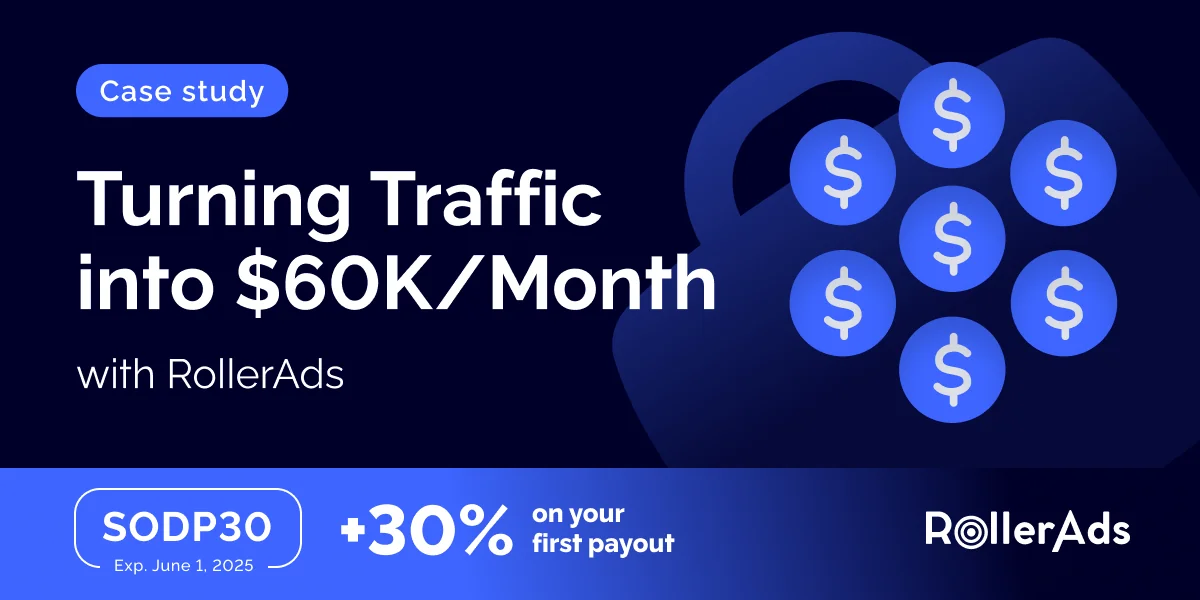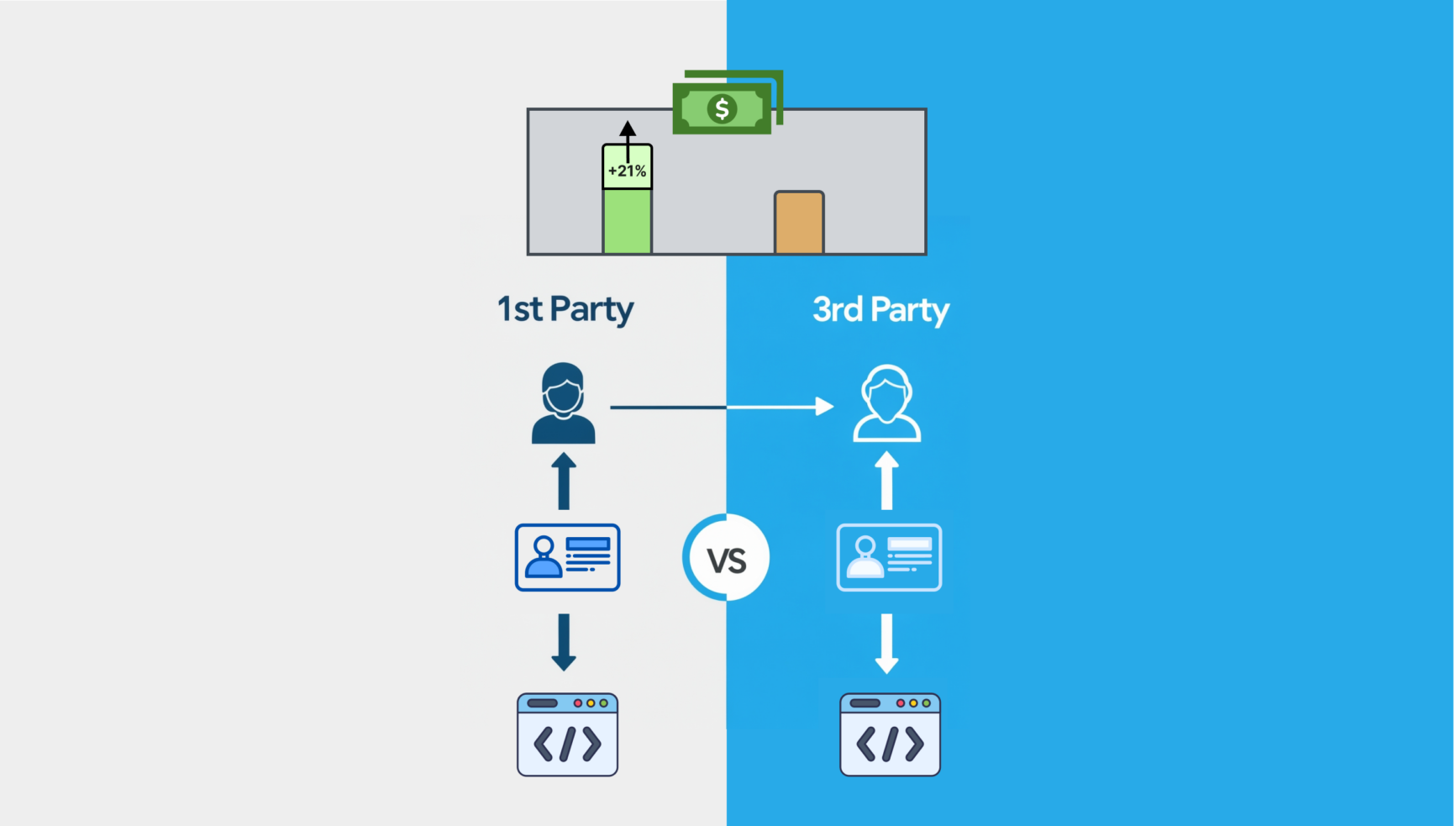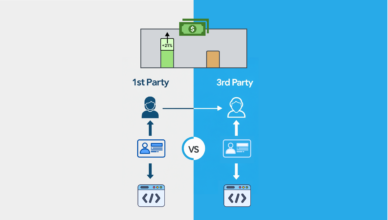Back when Gerald started his career, there was no such thing as a data journalist – it was something he had to define on his own through his own experience. Data journalism, particularly in the non-profit sector is playing now an increasing role in profiling community issues that can help instigate change at a governmental level in Austria. We speak with Gerald Gartner, data editor at “Addendum” about the role of data journalism in Europe.
Podcast Transcription
Vahe Arabian: In this episode, I speak with Gerald Gartner, from Addendum dot org. It’s a nonprofit based in Austria, and he speaks about the life of being a data journalist, and how he’s contributing to the whole mission and goals. Let’s begin.
Vahe Arabian: Hi Gerald, how are you?
Gerald Gartner: Hi Vahe, I’m good, thank you. How are you?
Vahe Arabian: I’m good thanks, thanks for asking. Thanks for joining us.
Gerald Gartner: Yeah, happy to be here.
Vahe Arabian: How’s the weather in Austria? At the moment?
Gerald Gartner: At the moment, it’s raining, but there has been quite a long period of sunny weather recently. It’s supposed to be better at the end of the week.
Vahe Arabian: Well, it’s certainly good timing, because it’s the weekend.
Vahe Arabian: Gerald thanks again for joining us, I wanted just to have you on our podcast because I’d like to just, for people who are interested in data journalism and just more about publishing in Europe, which we haven’t spoken much on that, but today I’d really like to get your thoughts and background and ask you some questions around that.
Vahe Arabian: But before I do that, if I could just ask you to give a background about yourself and Addendum? If you don’t mind?
Gerald Gartner: Yep, sure. My name is Gerald Gartner. I do work as a data editor for Addendum, which is a recently launched new medium in Austria. Previously to that, I worked for the Standard, which is a daily newspaper, and also previously to that, I worked for the Neue Zurcher Zeitung, which tried to launch a digital first but subscription only product in Austria, and additionally I teach data journalism at the University of Applied Sciences in Vienna. That’s it.
Vahe Arabian: Is Addendum a nonprofit platform, the new startup that your working for at the moment?
Gerald Gartner: Yeah. It’s a new medium, as I mentioned, we are online since, I think, September of last year. We are focused on investigative research, offering new perspectives, wider contexts and backgrounds, and we aim to present it in an easily understandable and appealing manner at extra visual and paper journalistic level. And our target is to make our readers and users and viewers think, “I have never looked at things in this light before.”
Gerald Gartner: And the essential reason for the creation of Addendum is the attempt to answer the question, “Are the currently established media products still sufficient for our complex world and its media consumption?” And we focus on relevant questions from the world of politics, economy and society.
Gerald Gartner: Furthermore, we do have investigative journalistic research, also dealing with corruption, and the abuse of power, which we also publish on a regular basis. And Addendum is free of advertising, and accessible without paywall.
Vahe Arabian: For those who don’t know Addendum, who started it, and how did you come on board the team?
Gerald Gartner: The editor in chief is Michael Fleischhacker, and there is a foundation in the background which is called Quo Vadis Veritas, which finances our mission, and he asked me if I wanted to join, because I worked with him previously at Neue Zurcher Zeitung, and there aren’t that many data journalists in Austria, so he offered me the possibility to join and I was happy to do so.
Vahe Arabian: Working with the media startup, I’m sure there’s more bandwidth to cover a more broad range of stories, and have more autonomy as well…
Gerald Gartner: One of the reasons to join the new media startup was that I thought that I could learn here more than at the Standard, because the Standard is a legacy newspaper, so there’s a fixed structure, and if you join a new medium, you have to build all the processes. You can be part of building new processes and designing a newspaper, a reading experience, in a way that’s appropriate for 2018, and also, I do have the possibility to do investigative pieces, and I have more time for research.
Vahe Arabian: It’s exciting, but I’m sure there’s a lot more work to it as well, but, like you said, there’s a lot more positives than drawbacks. I’m really happy that you have this opportunity, so that’s awesome.
Vahe Arabian: How does your day to day look at the moment?
Gerald Gartner: I do not have a regular schedule, but my workflow consists of an interplay of researching data, analyzing data, visualizing data, and then I’ll go on to trying to contextualize what I’ve found out. Initially, I start off reading scientific papers, or the recent coverage of a topic that I want to cover. Then I go on to analyze the data, talking to experts, and then publishing the data, and try to build social media assets we can also publish.
Gerald Gartner: Sometimes the process is different, for example, last week we did publish a piece on which Facebook comments get deleted from the Facebook pages of politicians. Because we do have a script which checks on Facebook pages, which comments disappear. The script visits the page of the politician every ten minutes, writes all the comments into a database, and then after ten minutes, it comes back and has a look if the comments still there, or is it gone.
Gerald Gartner: The aim is to see if there is any censorship, and we did this project for a federal election in Austria, for the candidates of the parties. We also did that for, I mean there are nine federal states in Austria, and there have been four elections in recent history, so we did this project on all of the four federal elections. And we do have a new government, and after they have been in power for one hundred days, we also published a piece on which comments all the new ministers deleted in their first one hundred days.
Vahe Arabian: Yeah, that’s really interesting, because I think I looked at it, and what were some of the findings that you’ve got out of doing this exercise several times?
Gerald Gartner: Well most of the politicians or their social media editors do not like to have that many critical voices on their pages. At most of the Facebook pages, we found out that critical voices are silenced. If you regularly are critical on the pages, you might be banned from their page, and all of your comments are deleted, and we also spoke to some of the Facebook users who got deleted because if we do write the comment in our database we do not know if the user himself deleted the comment, or if the social media editor or the politician deleted it, so we got back to them.
Gerald Gartner: But it’s not like every critical voice is silenced, but it’s moving the discussion on the Facebook page in the right direction for the candidate. So there are still critical voices, but not that many as there would be if there would be no moderation.
Vahe Arabian: Have you seen any change in patterns since you covered several elections in how things have been moderated? Or have you seen that’s [crosstalk 00:09:07] the system, or it’s just the same?
Gerald Gartner: They are quite similar, so what was surprising that on most of the conservatives’ Facebook pages we did not find censorship, in an amount that we found on candidates from the Social Democrats or from the Green party. So there is a lot of censorship, or deleted comments on our Freedom party, which is the right-wing party, and what we also found but what wasn’t that surprising, was that hate speech is more common on the ends of the political spectrum. So we did find a lot of deleted comments on the candidate pages of the Green party, which is left wing, and the right wing party as well.
Vahe Arabian: Just back to the initial question, who built this script?
Gerald Gartner: Well, we do work with R statistical programming language R. And with Hyphen. And my colleague is an incredible wizard who builds the scripts, and I analyzed the data and classified the comments afterwards, so what was critic, what was critic but was unsubstantially, like there haven’t been arguments in the comment. Or what was hate speech, and which comments did not have any direction at all, but also got deleted.
Gerald Gartner: We do have one statistician. I mean, all of us, we identify as journalists, but we do have specific backgrounds. One is statistician. I have a background in journalism, and one has a background in programming and the best pieces we do, we do in collaboration.
Vahe Arabian: How does it work in terms of coming up with new projects and making sure that it gets carried out within the timeframe that you guys set internally?
Gerald Gartner: There is a rule which always comes true, “It always takes longer than you think.” So we do have that in mind, always. But how we do try to get new stories, is to go, reading and get inspired by stories of other news outlets, I mean the New York Times and the Republican Post often do exceptional work in this field, also some of our colleagues in Germany, from the Berliner Morgenpost, or the Suddeutsche Zeitung. They do exceptional work and we get inspired by them, and also we try to go through the world with open eyes and see where we think we might find data, or find stories which can be proven with data better than without. Like, is there more segregation in Vienna today than there was 20 years ago?
Vahe Arabian: How do you determine the topics that your audience looking to get informed or about. I know you get inspiration from other websites, but how do you make sure they match what your audience is looking to get informed about, more, of the topics?
Gerald Gartner: There are a lot of topics which are lying in the air, in Austria, but there is no in depth coverage of it. And that’s where we see our potential. There is the crime statistics gets published every year, but there is not an in depth look at it. For example, what I always try to do is to try to make journalism as personal as possible. And due to the ever growing amount of paper that is available, we can achieve this, and in the case of crime stats, we did a special investigation in regional patterns, so our readers could have a look if the violent crime rate in their district is up or is down. And that’s, I think, much more relevant to them than the coverage other outlets did on the whole Austria. It’s not in their personal field.
Vahe Arabian: I understand. If you say that there’s no other outlet out there who goes in depth, why do you think that’s the case? Is it just, like you alluded to the fact that it’s mostly legacy newspaper companies, but I’m assuming that they would have had some people in-house who might be trying to investigate more the deeper issues?
Gerald Gartner: Because most of the day to day newspapers just do not have the time. They are working on a day to day basis, and we do have multiple weeks time to investigate a topic. That’s just an advantage we do have because we do not have to publish a newspaper every day-
Gerald Gartner: Do not have to publish a newspaper every day, or run a website with all the news that happened today, so we can focus on one topic each week. That’s what we do at the moment. So, you won’t find daily coverage of the news with us, it’s just some background and contextualizing information.
Vahe Arabian: Do you think the market there for in-depth journalism still needs to grow?
Gerald Gartner: Yeah.
Vahe Arabian: Because it’s not like [crosstalk 00:15:34] America, or like the New York Times where they do have those departments in there do to in-depth coverage.
Gerald Gartner: I do not think that the situation in America is comparable to Austria because Austria’s a pretty small market, and we also do have other newspaper sites from Germany who also compete for unique clients and visits.
Vahe Arabian: Sure.
Gerald Gartner: It’s not profitable for other newspapers to work on one topic for that long period because they just earn a limited amount of page impressions and unique visits in comparison to if they publish every day.
Vahe Arabian: I understand. So, just taking a step back. You mentioned that there aren’t a lot of data journalists in Austria. I guess that answers the question, the last part that we spoke about answers the question to some extent, but how did you develop your skills as a data journalist and how did you get the opportunity to focus just on data journalism?
Gerald Gartner: I studied journalism at the University of Applied Sciences. But, there hasn’t been any data journalism education. So everything you need to do if you want to start off is to have a look at all the wonderful resources which are available online. There are a lot of online courses or tutorials on YouTube. Really, all you need to do is just take the time and just try to write stories. There are a lot of data sets which haven’t been analyzed in depth, still. Especially in Austria, because as I mentioned, there aren’t that many data journalists. I do not think that there is a clear career path, but I think that the best way is to learn by doing and to start a blog, or something like that.
Vahe Arabian: How did you get the opportunity to work in your previous companies as a data journalist? How did they see to realize that there was a need for that specific skill set?
Gerald Gartner: I just can say that they asked me if I wanted to join. I do think that there is a need for data journalism because data makes your reporting more accurate. And especially if you do focus on making news more personal, like I do, that’s not something every journalist is able to do. You do have to be comfortable with Excel or at least, some statistical analysis program and I just got asked if I wanted to join.
Vahe Arabian: So you started out doing some of your own projects and they saw a bit of your profile, and then from there you were able to join these companies?
Gerald Gartner: My first job was with Gazette and the background story there was I had the chance to travel to the East Coast of the United States and visit a lot of media companies within three weeks to have a look at their business model. At this journey I traveled along someone who was responsible to launch the title in Austria and we got to talk and he said that he thinks that I should join and talk to the editor in chief, which I did, and then they hired me.
Vahe Arabian: That’s pretty awesome. That’s a pretty good opportunity. Not only the travel but to also get into the start up phase of trying to define data journalism.Is that your second time? That you were in that situation? How has that experience helped you to grow and be confident in teaching others as well at university?
Gerald Gartner: The media start ups are pretty different. Like in the first instance we tried to start paywall but now we do not have to take in advertising or a subscription based modeling to account because we do have the foundation in the background. Also, in the first medium most of the journalist were pretty young and we tried a lot of things. We failed a lot. But I think we learned a lot while trying to build things. And what works and what doesn’t, like building community features, how important is the onboarding process if you have a subscription based model, also that there is never the ultimate version of a paper, you still have to adapt and adapt every few months. You’re in a constant beta modes and always try to improve your website.
Gerald Gartner: The parts about improving your website didn’t change now with addendum, but at addendum we do also have 50 minutes TV series each week, which we also produce. Which is in relationship to the content we do publish on the website, so there is like five to 10 articles each week about a specific topic and also the TV series is about that topic. So it’s my first time getting into TV and working with people from that background. So that’s also pretty interesting.
Vahe Arabian: So how have you seen addendum and your progress from September until now, how has the progress been with your efforts?
Gerald Gartner: What did we learn? We did have a lot of articles in the beginning. We started one week with nearly 20 articles and published three of them everyday. And that was just too much. Also because some of the article didn’t receive the attention they might have got if they would have been alone the day and we also tried to focus on the story which has the most relevance and make this article visually better than if we have 20 articles in total. So we spent more time enriching single stories. But we are far away from perfect and trying to improve our structure every few weeks.
Vahe Arabian: I understand. It’s always going to be a lucky set. [crosstalk 00:23:23]
Gerald Gartner: What’s also different is our newsroom doesn’t consist of journalists entirely. We do have one branch with experts. They focus on researching. So what that means is that we do have someone who has a degree in law, and we do have some political scientists and they do give us story ideas and deliver facts. So that’s quite unique because most journalists integrate themselves as generalists. Most of them do not have a really special field of having studied law or something like that. We do have the manpower in house to fact check and give feedback from an early stage on.
Vahe Arabian: That’s really good that you’ve got that blend and that’s what helps enrich the articles as well. So how many of you are there at the moment?
Gerald Gartner: We have, I think between 40 and 45. Something like that.
Vahe Arabian: So from zero to 45 since September. That’s pretty impressive.
Gerald Gartner: There has been a core team which started in April, but we went live last September. So I joined in August trying to build an infrastructure of data journalism in a month and then we went up.
Vahe Arabian: So what’s the infrastructure that you’ve built? And what’s the plan moving forward? What are you planning to do?
Gerald Gartner: If you build an infrastructure for data journalism you have to have a server where you can hose your intact graphics. Just at the minimum. But I think there have been, let me think about that. Since I work in a small newsroom, I would say you do have two options to tackle the integration of data journalism in an organization. One is making huge interactive stories where there is no template for graphics at all. Or the other way is writing tools to help your journalists to integrate data in their reporting. So our main focus in the one and a half months, in the beginning, was to find the best tools for our other journalists and experts which we found in Datawrapper which is a graphics tool. I just can say it’s the best which is available. You can go from your Excel spreadsheets to your bar chart or line chart within five minutes, which is also really, really important if you do have deadlines to meet.
Gerald Gartner: And Datawrapper is one tool we currently use. We tested Rueish quite recently, which is also kind of the new kids on the block. They do offer some other diagram types. And what we also built is the tool for going. It works off your organizations.
Vahe Arabian: That’s pretty interesting. How’s the results been to date for addendum in general? What are some of the targets that you set for yourselves internally and were you able to meet those targets? Your quarterly targets or yearly targets so far?
Gerald Gartner: I can’t the answer about that because I’m not responsible of the analytics. I think our main focus is having impact. Impact means that organizations and institutions react to our reporting and that was the case last week or two weeks, the latest. Because we wrote an email to all of the 2,400 municipalities in which we asked them to make their subsidies to sports organizations in their municipality transparent, like tax payer money. And most of them declined. Some mayors being rude about who we are to ask them making their subsidies transparent, which was quite interesting to read. And then one political player said that they would take this transparency issue and put it on the agenda.
Vahe Arabian: So I didn’t’ get that last part. You said that politician was going to get that issue and?
Gerald Gartner: Yeah, the put it on the agenda. [crosstalk 00:28:45] to solve the issue that they do have to make their subsidies transparent. Now they don’t.
Vahe Arabian: I understand. So is that what you define as impact? Having that political change or societal change? Is that how you define your personal impact in your work?
Gerald Gartner: Yeah, if it concerns corruption or something like that. Having impact is and holding the powerful accountable is the most important task we do have, I think.
Vahe Arabian: I think so. Especially since that you guys are set up as a non profit. So does that make you, working in the non profit company, does that help you with focusing more on different [crosstalk 00:29:38]
Gerald Gartner: Yeah, of course. [crosstalk 00:29:39] in Austria, there’s a very special relationship between politics and media because there is, like if you run an ads from political parties, that’s one source of income for newspapers. But …
Gerald Gartner: First of income for newspapers, but you can’t ensure if you do criticize a political party, it might be that the party doesn’t run the ads anymore in your newspaper and then you ran out of money, so it’s a problem for them and we do not have to care about that at all because our foundation is in the backgrounds and we are not subject to those problems.
Vahe Arabian: Is there anything that you have to be wary of? When are you covering these types of topics?
Gerald Gartner: No, not at all. Our sponsor is Dietrich Mateschitz, who is the founder the company Red Bull and he saw there is a lack for the work we do and that’s why he founded this organization.
Vahe Arabian: That’s really awesome. That’s exciting. So Gerald, is it possible if to go through one example of a campaign … an example that you find your favorite, can you go through one example of how you put that together, some of the tools that you use, some of the methods that you use so that for people who want to try something out for themselves can use your example?
Gerald Gartner: All of my examples are available, most of them are available on my GitHub page because we tried to make our work reproducible. All our scripts and the data is available online. What we did for example in one of our first projects was to investigate the global terrorism database, and we had a look at how many deaths are attributed to terrorism since I think 1970. We received the data set from the University of Maryland, I think was the source. Then we asked us some questions we had, like what are the most important players since the 1970s? How did the number of deaths changed? Where are most of the terrorism incidents? Did the numbers in Europe really … with all of these questions, we interrogated the dataset. We curate the database, found our answers, visualizes the results and then we put our story online.
Gerald Gartner: It was somehow difficult to make the translations. I think we had 150000 categories of the motives behind. Not 150000 but I think 1000, and we all translated them with Google Translate. Then we also had to geo code all their location. That’s in short what we did.
Vahe Arabian: That makes sense. What happens if sometimes you have an idea, and then you think that you figure out that you have the data, or the data source but then it falls through. What would happen in that case?
Gerald Gartner: In that case, we just can’t run the story, and we could try to have a look at other data sources, but sometimes, you have to kill your darlings and those. If you do not find the data set, you can still try to make your own data set, like Reddit and the Facebook example, but then you have to change your schedule because it will take longer.
Vahe Arabian: I’m assuming though that you guys are planning in advance that you can foresee some of the fall throughs if that happens, is that correct?
Gerald Gartner: Yeah, yeah. We have a confidence interval. If we think that we might be able to publish a story in two days, two weeks or six months and we always work on multiple projects at one time because we do have to take into account that most of our sources are not capable of delivering all the data we needs within one day or less. So that’s just the reason why we work on multiple stories at time.
Vahe Arabian: That’s also … so just looking ahead. Looking at Addendum’s 2018 initiatives just for the rest of the year, what’s planned in general and what are you planning for yourself and for the department or the processes and infrastructure that you want to build up?
Gerald Gartner: What I want to do in 2018 is make outstanding journalism but my personal goal is to personalize journalism further. I do want to get into video storytelling and integrating data in videos and also what I want to do is data sonification, like making sounds out of your data. There have been projects on making all earthquakes which occurred in Italy I think hearable and the stronger the earthquake was, the higher the sound was, and it was the sounds. I think in this case, it’s a pretty unique way of storytelling, and that’s what I also want to try see and also I want to get …
Vahe Arabian: So, sorry, Gerald to cut you off. Does that mean that you get a piece of data, and then if it’s an article which has specific altitude … not altitude, sorry, magnitude, they’ll elicit or bring up a specific noise or what does that work? The sound journalism.
Gerald Gartner: You translate like if you have an earthquake with seven on the Richter scale, then it’s a higher acoustic sound then if it’s a number two on the Richter scale. Then you make a time series with that and combine it with a line chart, and you press play and then you see in one corner for example the date and within the line if there has been an earthquake and if so, how strong was it and correspondingly you hear the sound for that.
Vahe Arabian: That’s really awesome. I look forward to seeing that. We’ll put it in the notes once you have that published and the notes, and we’ll put your GitHub link into the episode notes as well, so thanks for that. That sounds really interesting. What was the 2018 Addendum’s initiatives, the overall roadmap that’s being planned out that you can share with us if that’s possible?
Gerald Gartner: As I said, I’m not in the positions to talk about KPIs or something like that. I just can tell you that we aim to enlarge our data team because we still need to have front end, at least one front end developer more to make more project which are interactive and are not possible with the possibilities that Datawrapper offers. So making really, really costumed maps, building storytelling template, for example, things like that.
Vahe Arabian: Cool.
Gerald Gartner: What’s also the goal is that we do need to find some new formats to tell data-rich stories on mobile phones because most of our readers read our articles on their smartphone and we are constrained by the size which is available, so we need to find a way to better tell our stories there.
Vahe Arabian: Understood. There’s a recent Guardian mobile two year study, which we went through some findings, there’s the links to that, so I’m sure there’s some information you can find there. But mobiles are getting bigger this year or next year I think and beyond.
Vahe Arabian: Gerald, final question and final topic I guess is about career advice. Two parts … how do you think, what’s some of the career advice to give to someone, I know that you said that you can’t give … there’s no direct path but what’s some of the career advice again you once give to someone who wants to get into data journalism in Austria/Europe? And how do you think a professional can further professionalism in Austria?
Gerald Gartner: I think if you want to get into data journalism … In Austria, you just in contact with one of the data journalists because most of the data teams would be happy to hire someone like you. I teach at the university for I think four or three years now, and there have always been 30 students and none of them will decide to with that work, even though I told them that on data journalism is one of the few spots where you have a chance as a young journalist because everything you need to do is not being scared of making basic mathematical … not being afraid of basic math, that’s a good starting point and being curious about new ways of storytelling. That’s what is my best career advice I guess.
Vahe Arabian: Cool. In terms of just improving the industry standards in Austria and in Europe, do you think there needs to more industry associations or cross collaboration learning with other countries? Maybe would that help or what do you think would help you?
Gerald Gartner: We have had some cooperations with media outlets from Switzerland and from Germany, which went quite well. But I think that there has to be more cooperation between data teams, but that’s happening the last two to three years that data teams from all over Europe are coming together and making stories together and running projects.
Vahe Arabian: Cool. I hope that happens as you guys expand and grow and I wish you all the best in your current endeavors, it seems that you guys are moving very quickly and you have done a lot of exciting projects. Thank you for joining us and all the best.
Gerald Gartner: Thanks, thanks. All the best to you too.
Vahe Arabian: Thank you for joining us on this episode of State of Digital Publishing podcast. Be sure to listen to past and upcoming episodes in all major podcast networks. You can also visit and listen to it on stateofdigitalpublishing.com. You can access to our membership, resources, news and articles. Be sure to also join our communities on Slack or Facebook and share at our content through social media, Twitter and Facebook. Until next time.












